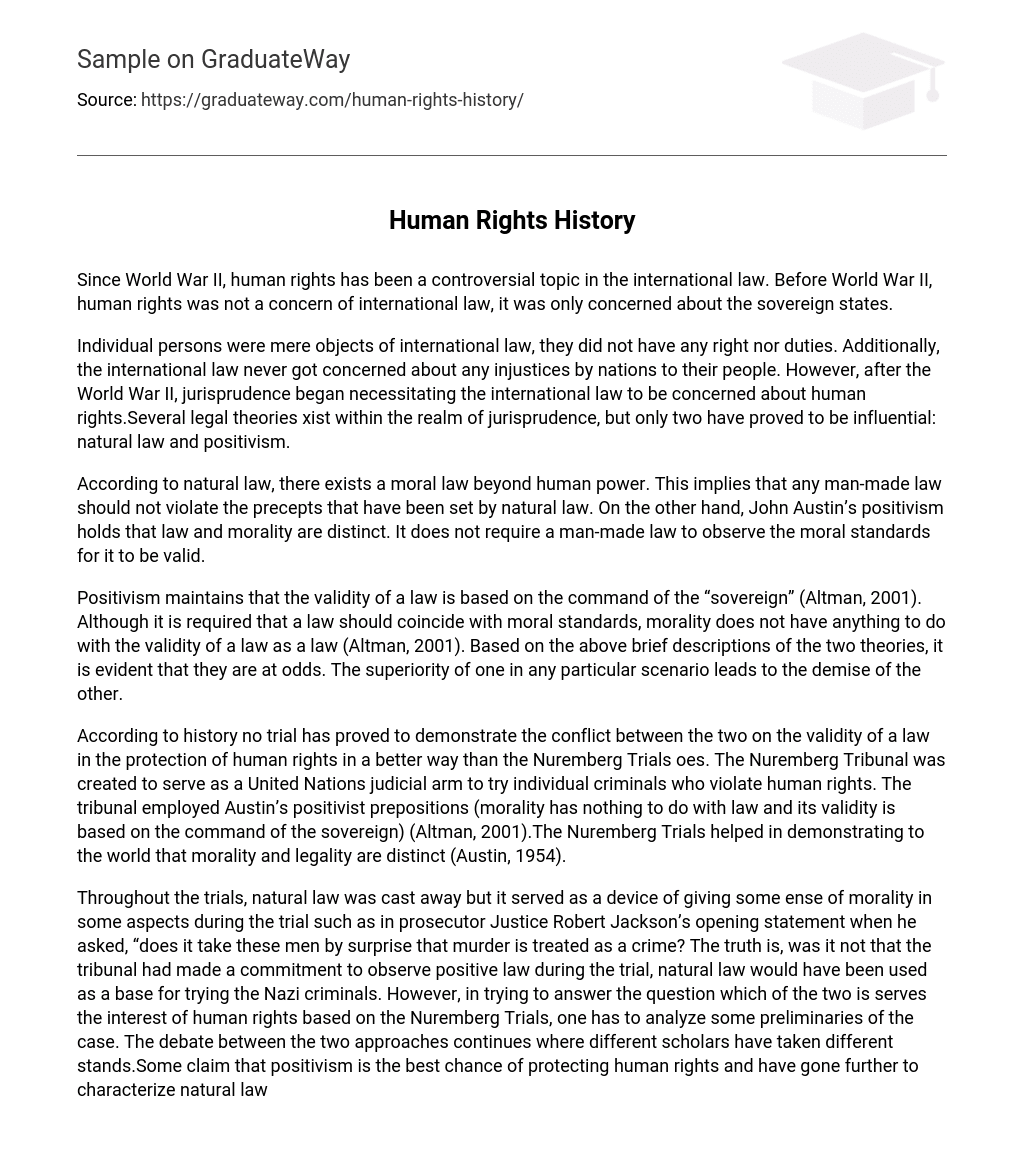Since World War II, human rights has been a controversial topic in the international law. Before World War II, human rights was not a concern of international law, it was only concerned about the sovereign states.
Individual persons were mere objects of international law, they did not have any right nor duties. Additionally, the international law never got concerned about any injustices by nations to their people. However, after the World War II, jurisprudence began necessitating the international law to be concerned about human rights.Several legal theories xist within the realm of jurisprudence, but only two have proved to be influential: natural law and positivism.
According to natural law, there exists a moral law beyond human power. This implies that any man-made law should not violate the precepts that have been set by natural law. On the other hand, John Austin’s positivism holds that law and morality are distinct. It does not require a man-made law to observe the moral standards for it to be valid.
Positivism maintains that the validity of a law is based on the command of the “sovereign” (Altman, 2001). Although it is required that a law should coincide with moral standards, morality does not have anything to do with the validity of a law as a law (Altman, 2001). Based on the above brief descriptions of the two theories, it is evident that they are at odds. The superiority of one in any particular scenario leads to the demise of the other.
According to history no trial has proved to demonstrate the conflict between the two on the validity of a law in the protection of human rights in a better way than the Nuremberg Trials oes. The Nuremberg Tribunal was created to serve as a United Nations judicial arm to try individual criminals who violate human rights. The tribunal employed Austin’s positivist prepositions (morality has nothing to do with law and its validity is based on the command of the sovereign) (Altman, 2001).The Nuremberg Trials helped in demonstrating to the world that morality and legality are distinct (Austin, 1954).
Throughout the trials, natural law was cast away but it served as a device of giving some ense of morality in some aspects during the trial such as in prosecutor Justice Robert Jackson’s opening statement when he asked, “does it take these men by surprise that murder is treated as a crime? The truth is, was it not that the tribunal had made a commitment to observe positive law during the trial, natural law would have been used as a base for trying the Nazi criminals. However, in trying to answer the question which of the two is serves the interest of human rights based on the Nuremberg Trials, one has to analyze some preliminaries of the case. The debate between the two approaches continues where different scholars have taken different stands.Some claim that positivism is the best chance of protecting human rights and have gone further to characterize natural law as a myth.
However, despite the fact that positivism downplays natural law, most scholars have started to return to natural law (Manelli, 1981). This trend is exhibited in Judge Tanaka’s dissenting opinion during the judgement of the South West African Cases at the International Court of Justice in 1966.





